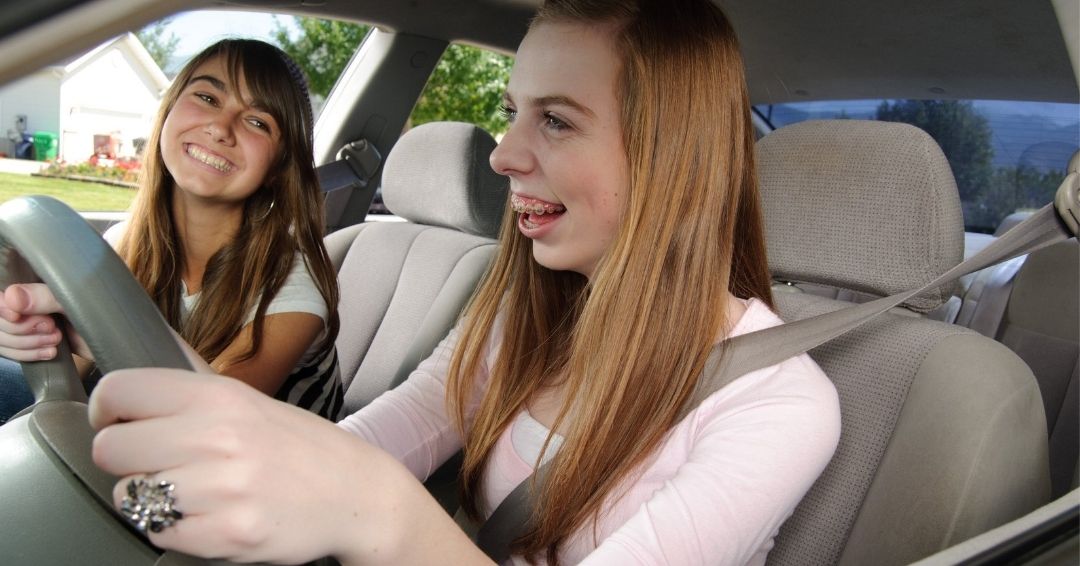
By Andrew Arboe of AutismDriving.com (article republished with permission)
Driving is often one of the most important milestones an individual achieves in a lifetime. It can symbolize many things: freedom, responsibility, independence, and opportunity. While many parents expect their teens to start driving when they are 16 or 17, it can be complicated under the context of autism. During many workshops I have delivered on this topic, I’ve seen firsthand how many parents are unsure of how to help their autistic teen get their license. After all, very few school districts help with driving and finding resources is always a struggle. I imagine you have your own similar stories and are looking for advice. If your teen wants to drive, how can you motivate them to learn, and how can you find resources that will prepare them for an independent life on the road? Here are six helpful tips that you, the parent, can do to make driving easier for your autistic teen. A lot of this material can apply to young adult drivers as well.
1.) Know your young adult, and be patient with them
This seems obvious at first, but it can be hard in practice. You must know your teen’s preferences, likes, dislikes, and personality. You also need to know that they are processing things the best they can and that they can sense if you’re uncomfortable with the idea of them getting behind the wheel. I remember how uncomfortable my dad was when I first started and knowing that he felt uncomfortable made it harder for me to focus. Even getting used to parking lots was a challenge because of that tension.
This also leads to my point, which is to be patient! Again, your young adult is trying the best they can to absorb all kinds of new information. They will likely learn at their own unique pace, and that’s okay. If you force them to do something that they are uncomfortable with, it is only going to set up unneeded trouble. You should also try to get an idea of what they’re feeling, and what’s at stake for them. Whether they need a license to commute to college, get their own apartment, or get the job they want (as was the case for me), the weight of those stakes may give them no choice but to get their license, and that will likely weigh heavily on them.
2.) Be Aware That Some “Helpful” Advice May Do More Harm Than Good
Be careful of what you say to your young adult, because they may interpret innocuous-sounding advice as something else entirely. For example, when I first began driving, I hated when my dad used the phrase “pay attention” during practice. Rather than being helpful, all that phrase did was remind me of the challenges that autism brings, my executive functioning difficulties, and the fact that few autistic adults successfully get their license. I was so focused on the negative connotations of “pay attention” that the last thing on my mind was paying attention to the road!
As I gained more experience — and my license — I managed to get over it. But when I first started driving, the use of “pay attention” and similar phrases significantly hindered my progress.
3.) Use Autistic Traits to Your Advantage
I know what you must be thinking: Doesn’t autism make driving more difficult? While autism can have a negative impact on driving and daily living, you can leverage some autistic traits, like preferences for routines and schedules, to your advantage. Integrating routine drives into your young adult’s schedule can go a long way towards developing motivation and self-confidence. Prime your young adult by telling them what they should expect before going for a drive, then have them go on a fun errand like grabbing coffee at Starbucks. Or you can integrate driving into their existing schedule. For example, I drove myself to my part-time job on the weekends, then began to take on more long-distance drives as I became more comfortable with my routine. Those errands and routines may seem simple, but the more times they do it, the more your teen driver will get comfortable with the idea of driving.

4.) Involve special interests if possible
Integrating special interests into the driving experience can help your young adult focus on the road. For example, I listen to music from my favorite video games, like NieR:Automata and Final Fantasy, to help me focus. You could also try listening to an audiobook from a favorite author or a podcast on your special interest during commutes. Once you find something your young adult really likes and can utilize without causing any major distractions, it works wonders. Feel free to experiment and see what works and what does not work for your teen driver. They are the master of their car once a license is obtained. I have yet to be judged by other drivers on my music preferences.
5.) Don’t rush the process
Just because your teen’s peers are getting their licenses now doesn’t mean that he and she will get it now as well. The truth of the matter is that there is no “magic age” when driving will happen. I got my license when I was 25 years old; my coworker is just getting her permit at 24. I’ve met many people that began their driving journey decades after their peers, including one person who was 40! Their experiences are proof that getting your license is possible at any age. The worst thing you can do is force your young adult to drive right now — instead, give them as much time as they need to get comfortable with the idea of driving.
6.) Create a support team
Develop a support team with people you can rely on to take your young adult out for driving practice. They can be a driving instructor, a spouse, a friend, and/or a family member. If for whatever reason you feel like you must teach your young adult on your own, familiarize yourself with your options.

Having a team was hugely beneficial for me when I learned to drive. I had a few friends who had no problem helping me get used to parking, I had an instructor I talked to when I did driver’s ed, and I had other friends I went to for support. I would not be driving — and teaching others how to get their licenses — if it weren’t for them. There is no shame in having a team help you out. Plus, it grants your young adult support so they can reach out on their own. It’s a win-win situation for everyone.
As with any of my blog posts, autistic individuals will always have varying challenges and varying levels of difficulty in learning how to drive. But I know very well it’s possible to make it work much more often than most people expect. The best thing you can do is know yourself and what works for you and doesn’t work for you before getting behind the wheel. Including your parents or guardians throughout the journey can also be helpful, even if it’s just for moral support or advice in making driving-related decisions. Choosing not to drive due to safety concerns is always a valid choice. Transportation needs and abilities vary for every individual and that is perfectly okay. Wherever your journey takes you, it will get you where you need to go.
—-
For more information about their driving courses and services, visit https://autismdriving.com/
